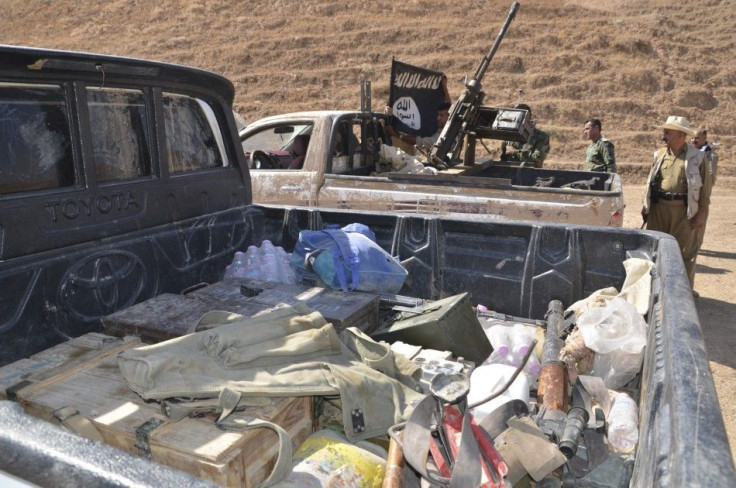British Military To Train 'Moderate' Syrian Rebel Forces Against ISIS; UK Sends Sentinel Aircraft To Track IEDs

Britain’s military troops will help train the Syrian opposition forces to fight ISIS militants. UK Defence Secretary Michael Fallon revealed that the government will send about 75 trainers and personnel to lend their expertise in handling small weapons and military tactics.
Fallon said the military training will be conducted in Turkey as part of a U.S.-led effort to help the “moderate” Syrian opposition. The foreign minister reiterated that only local forces can defeat ISIS on the ground in Iraq and Syria. He added British troops’ “effective and closely coordinated” activity with Iraqi soldiers and the Kurdish Peshmerga had pushed back ISIS militants.
The Mirror reports that around 1,000 moderate opposition fighters will be screened for their eligibility to train in the next three years to boost the defences of Syrian communities. ISIS has captured large territories in Iraq and Syria but the continuous airstrikes of the U.S.-led coalition has reduced the number of militants.
Britain has previously sent military instructors into northern Iraq to help train the Kurdish Peshmerga forces. The British government has also revealed it will send two Sentinel aircraft in the region. The aircraft will be used for surveillance in the Iraq battlefield and track the presence of improvised explosive devices or IEDs. In the war against ISIS, the RAF had sent drones or Reaper Remotely Piloted Aircraft and Tornadoes.
RT News reported that Fallon’s announcement followed the rejection of the British Defence Secretary of the criticism on the UK’s “strikingly modest” role in the war against ISIS. In February, the UK Parliament’s Defence Committee had urged the government to do more and that British military chiefs should develop a clear strategy in Iraq.
Fallon had defended the British government’s response to ISIS and reiterated that the UK is the second biggest contributor to the international coalition campaign against ISIS next to the U.S. ISIS militants are currently under siege in Tikrit as Iraqi ground forces continue to exchange with air support from the RAF.
U.S.-led bombers hit ISIS targets in Tikrit after Iraqi Prime Minister Haider al-Abadi requested the coalition to help Iraqi forces eliminate “difficult targets.” The U.S. military has announced in a statement that the coalition had conducted 17 airstrikes around Tikrit.
To report problems or leave feedback on this article, contact: r.su@ibtimes.com.au





















